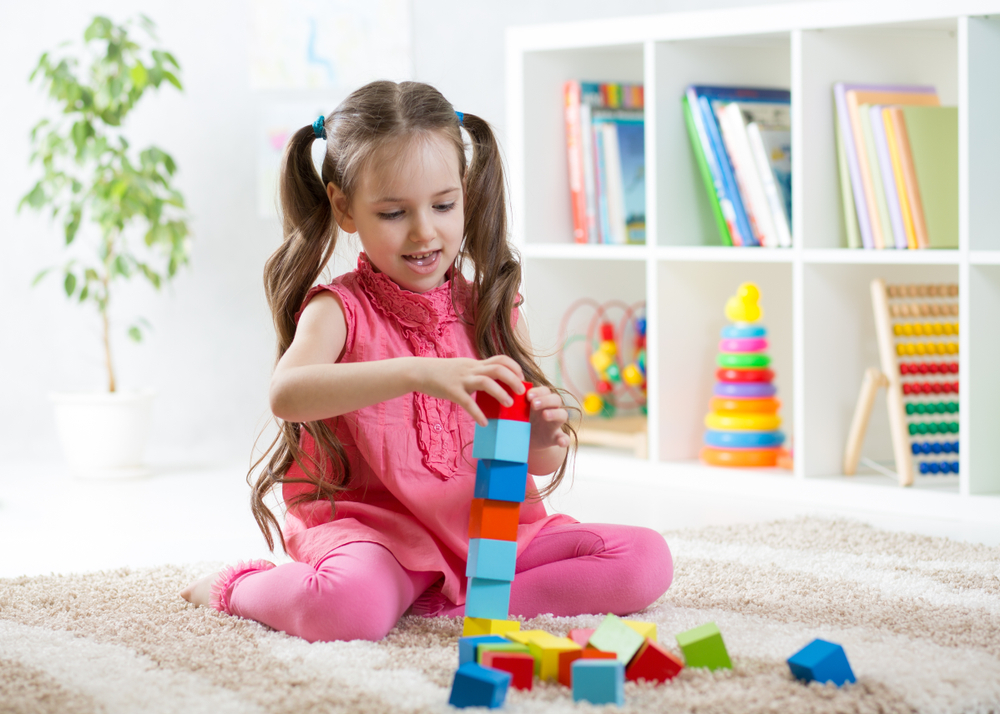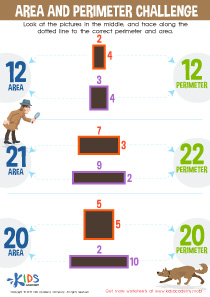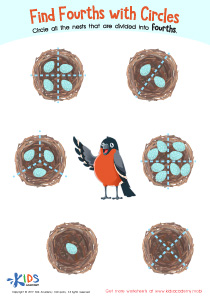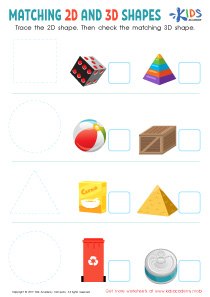Spatial awareness Extra Challenge 2D Shapes Worksheets
3 filtered results
-
From - To
Enhance your child's spatial awareness with our "Spatial Awareness Extra Challenge 2D Shapes Worksheets." These interactive worksheets are designed to engage young learners in understanding the relationships between different shapes, helping them develop critical thinking skills. Kids will enjoy exciting challenges that prompt them to identify, manipulate, and categorize various 2D shapes. Our resources foster creativity and boost confidence in geometry, ensuring that learning about circles, squares, triangles, and more is fun and effective. Perfect for classrooms or home learning, these worksheets provide an excellent opportunity for children to cultivate essential skills in spatial reasoning. Try them today for a rewarding learning experience!
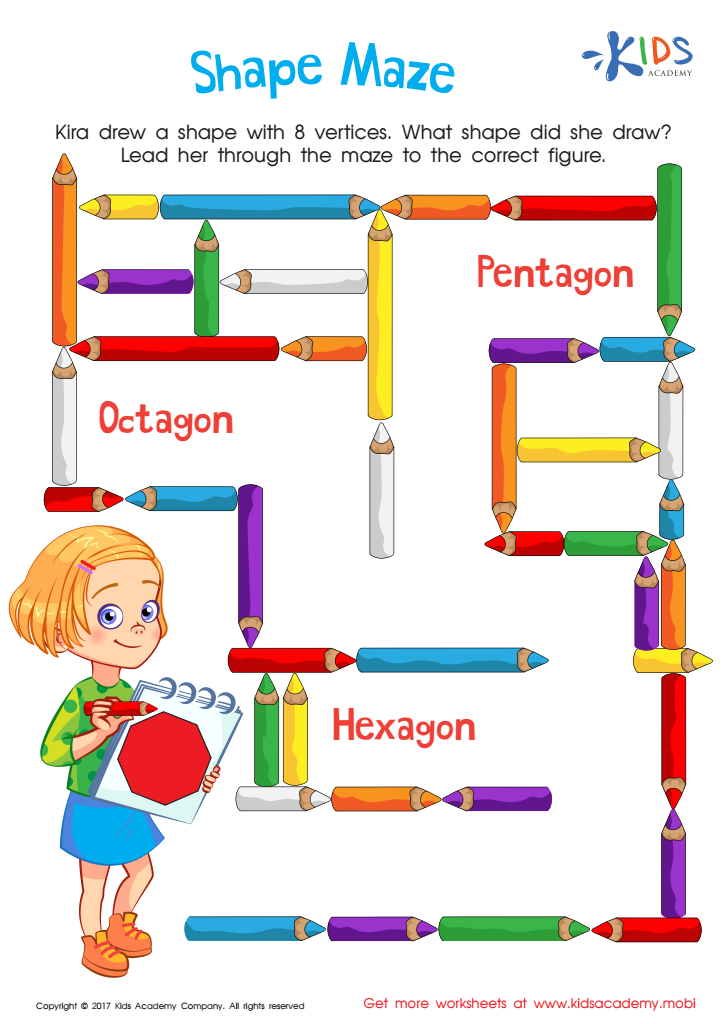

Shape Maze Worksheet
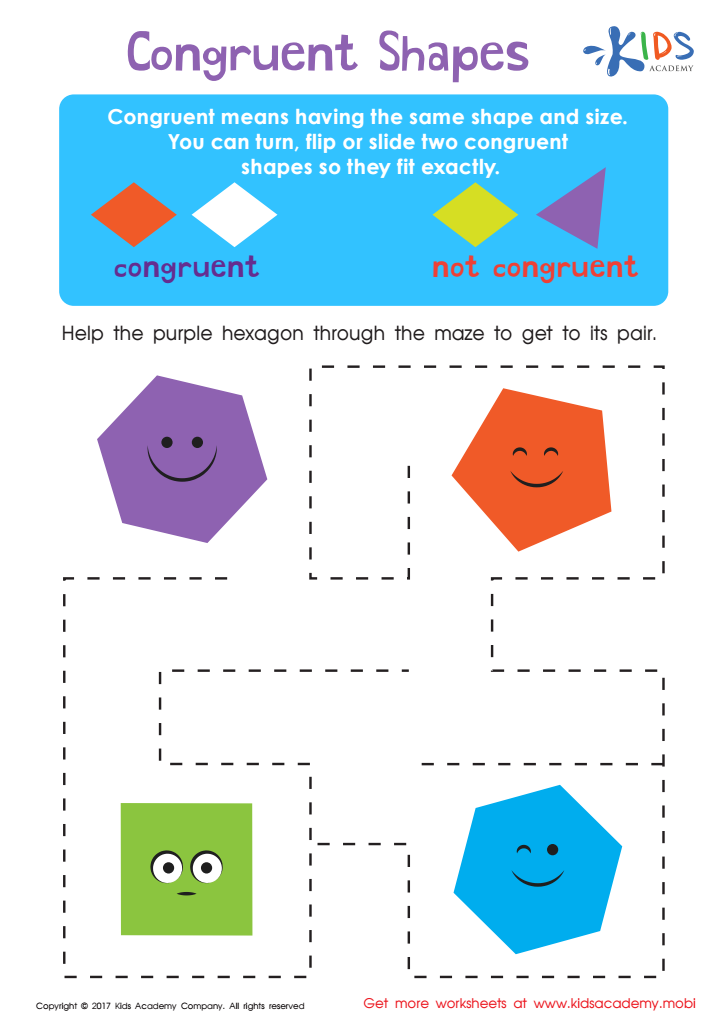

Congruent Shapes Worksheet
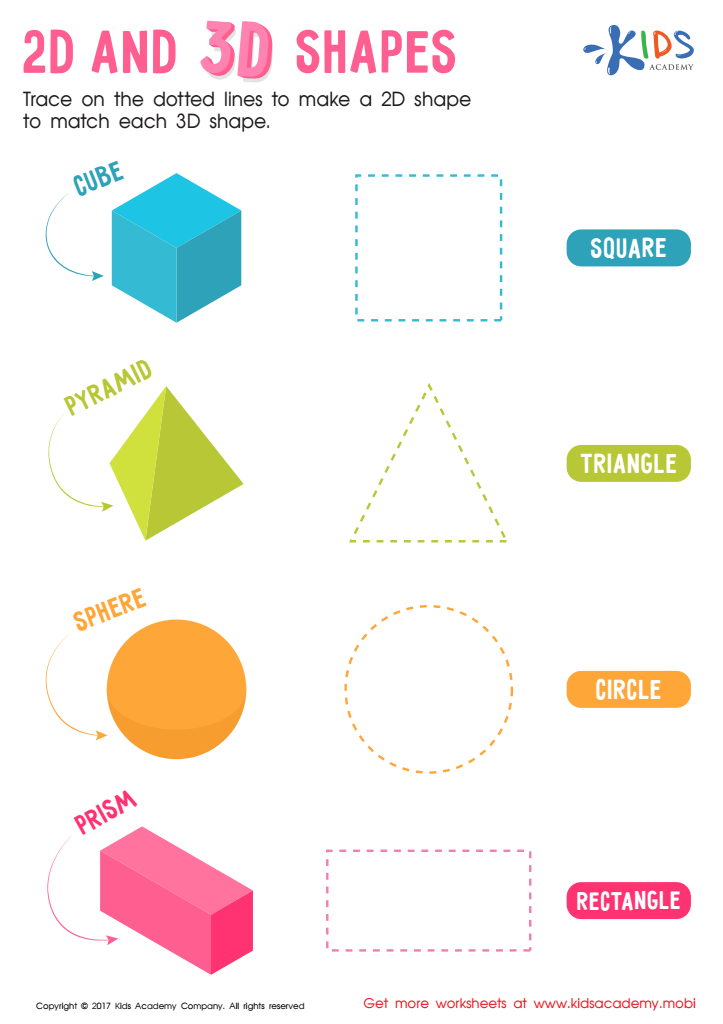

2D and 3D Shapes Worksheet
Spatial awareness is a critical skill for children, impacting their ability to understand and interact with the world around them. It involves recognizing shapes, understanding their properties, and visualizing spatial relationships. When parents and teachers emphasize spatial awareness, particularly through engaging activities with 2D shapes, they lay a foundation for crucial cognitive and academic skills.
Developing spatial awareness helps children excel in various areas, including mathematics, science, and arts. For instance, strong spatial skills are linked to proficiency in geometry, geometry's applications in drafting, and even engineering concepts. Crafting and building activities—using 2D shapes as a base—allow children to explore dimensions in hands-on ways, fostering problem-solving and critical thinking.
Moreover, spatial awareness enhances everyday skills, such as navigation and understanding traffic signs. It boosts creativity, enabling children to think in abstract ways when designing or imagining scenarios.
Parents and teachers can incorporate shape identification, sorting, and spatial reasoning games into learning activities, reinforcing these important skills. By prioritizing spatial awareness, educators and caregivers cultivate not only academic success but also essential life skills, preparing children to face future challenges confidently and effectively.
 Assign to My Students
Assign to My Students





